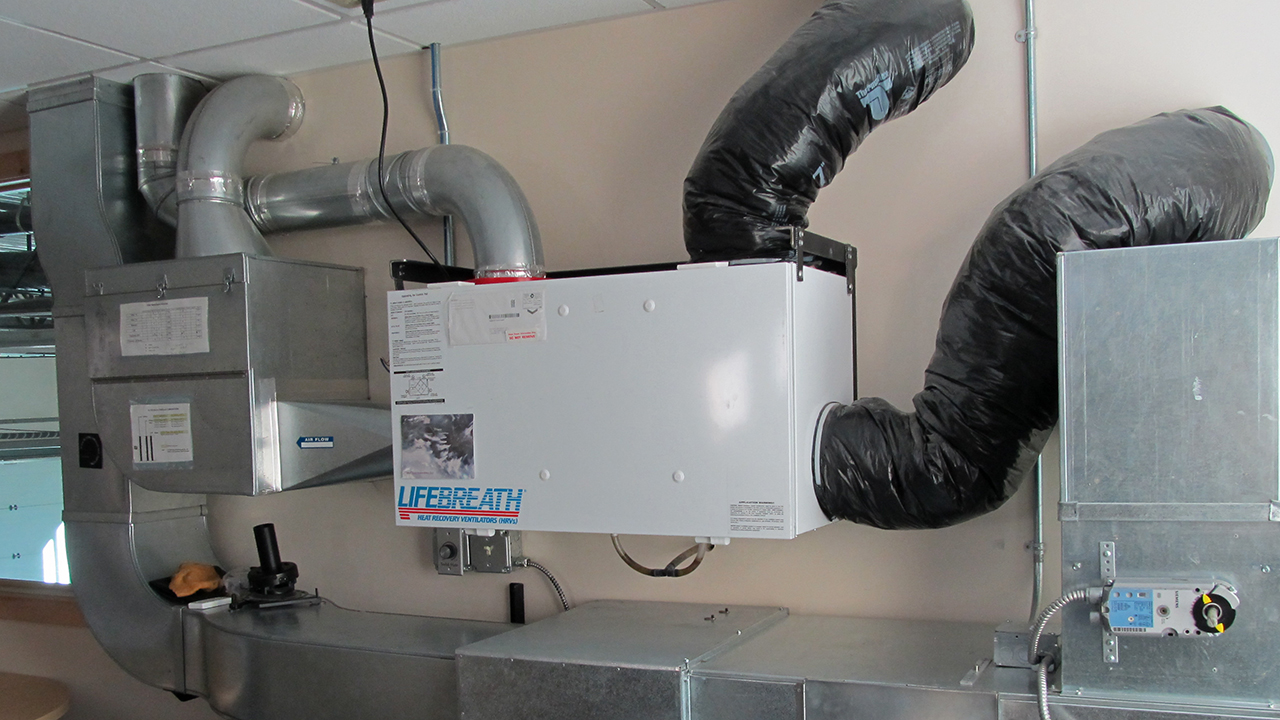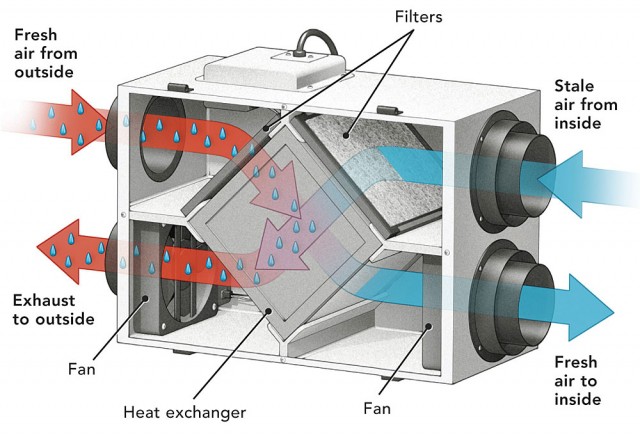The Environmental Impact of HRV in Modern Homes
Checking out the Benefits of Heat Recovery Ventilation for Energy Effectiveness in Homes
Heat Recovery Ventilation (HRV) systems supply property owners a functional strategy to boosting power effectiveness. By redeeming warmth from outgoing air, these systems can considerably lower heating & cooling costs. Additionally, they offer a stable supply of fresh air, boosting indoor air top quality and comfort levels. As house owners take into consideration sustainable alternatives, understanding the nuances of HRV systems becomes progressively essential. What variables should one assess prior to making such a financial investment?
Comprehending Heat Recovery Ventilation Equipments

Exactly How HRV Improves Indoor Air Top Quality

Energy Cost Savings: The Financial Benefits of HRV
Optimizing power efficiency, heat recovery ventilation (HRV) systems supply significant economic advantages for homeowners. By recovering and recycling warmth from exhaust air, HRVs noticeably decrease cooling and heating prices. This innovation can cause energy savings of approximately 30%, depending upon environment and use patterns. Homeowners usually discover reduced utility bills quickly after installment, making HRVs a monetarily sensible investment in time. Furthermore, many areas give incentives or refunds for energy-efficient upgrades, additionally boosting the economic appeal. As power rates remain to increase, the cost-effectiveness of HRVs becomes progressively clear. In general, original site the unification of HRV systems not only advertises power effectiveness however additionally contributes to long-lasting monetary cost savings for homes.
The Ecological Impact of Heat Recovery Ventilation
A significant environmental benefit of heat recovery ventilation (HRV) systems hinges on their ability to lower general energy usage. By reclaiming heat from exhaust air and moving it to inbound fresh air, HRV systems lessen the need for energy-intensive home heating and cooling techniques. This decrease in power need adds to reduce greenhouse gas discharges, as much less nonrenewable fuel source is called for to maintain comfortable interior temperatures. Furthermore, HRV systems improve interior air top quality by successfully exchanging stagnant air with fresh exterior air, decreasing dependence on mechanical cooling systems that can hurt the setting. Overall, the execution of HRV systems sustains sustainable living techniques and lines up with global efforts to fight climate adjustment by advertising energy performance in domestic settings.
Choosing the Right HRV System for Your Home
Exactly how can home owners ensure they pick the appropriate heat recovery ventilation (HRV) system for their requirements? They should evaluate their home's size and design, as these factors affect air movement needs. Next, evaluating the system's effectiveness ratings is important, as higher scores indicate much better efficiency and energy cost savings. Property owners need to likewise consider installation and upkeep costs, contrasting different brand names and versions for value. Furthermore, see this here it's important to assess noise degrees, as some systems operate more quietly than others. Consulting with a/c professionals can supply customized suggestions based upon specific home conditions. Lastly, examining customer testimonials and service warranties can help in making an informed decision, guaranteeing that the selected HRV system effectively enhances interior air quality and energy efficiency.
Frequently Asked Questions

Just how Typically Should I Clean or Keep My HRV System?
The regularity of cleansing or preserving a warmth recuperation air flow (HRV) system normally relies on use and environmental factors. Generally, it is suggested to execute maintenance every 6 months to assure peak efficiency and air top quality.

Can HRV Solutions Help In Reducing Humidity Degrees Indoors?
HRV systems can efficiently decrease indoor humidity levels by exchanging stagnant, humid air with fresh, drier air from outdoors. HRV Heat Recovery Ventilation. This procedure aids keep a well balanced indoor atmosphere, boosting comfort and protecting her comment is here against moisture-related issues
What Is the Life expectancy of a Normal HRV System?
The life-span of a normal heat recovery ventilation (HRV) system differs, generally lasting in between 10 to 15 years. Normal upkeep can prolong its performance and functional life, guaranteeing peak efficiency throughout its usage duration.
Exist Any Sound Interest In HRV Solutions?
Sound interest in HRV systems can occur, specifically from follower procedure. Nonetheless, many modern devices are made to reduce audio degrees, guaranteeing they operate quietly while preserving performance, which attends to prospective disturbances in living settings.
Can I Install an HRV System Myself, or Do I Need a Professional?
The individual contemplated whether to set up the heat recovery ventilation (HRV) system personally or employ a professional. Usually, while do it yourself installation is possible, experience assurances appropriate performance and conformity with local building regulations, enhancing system performance.